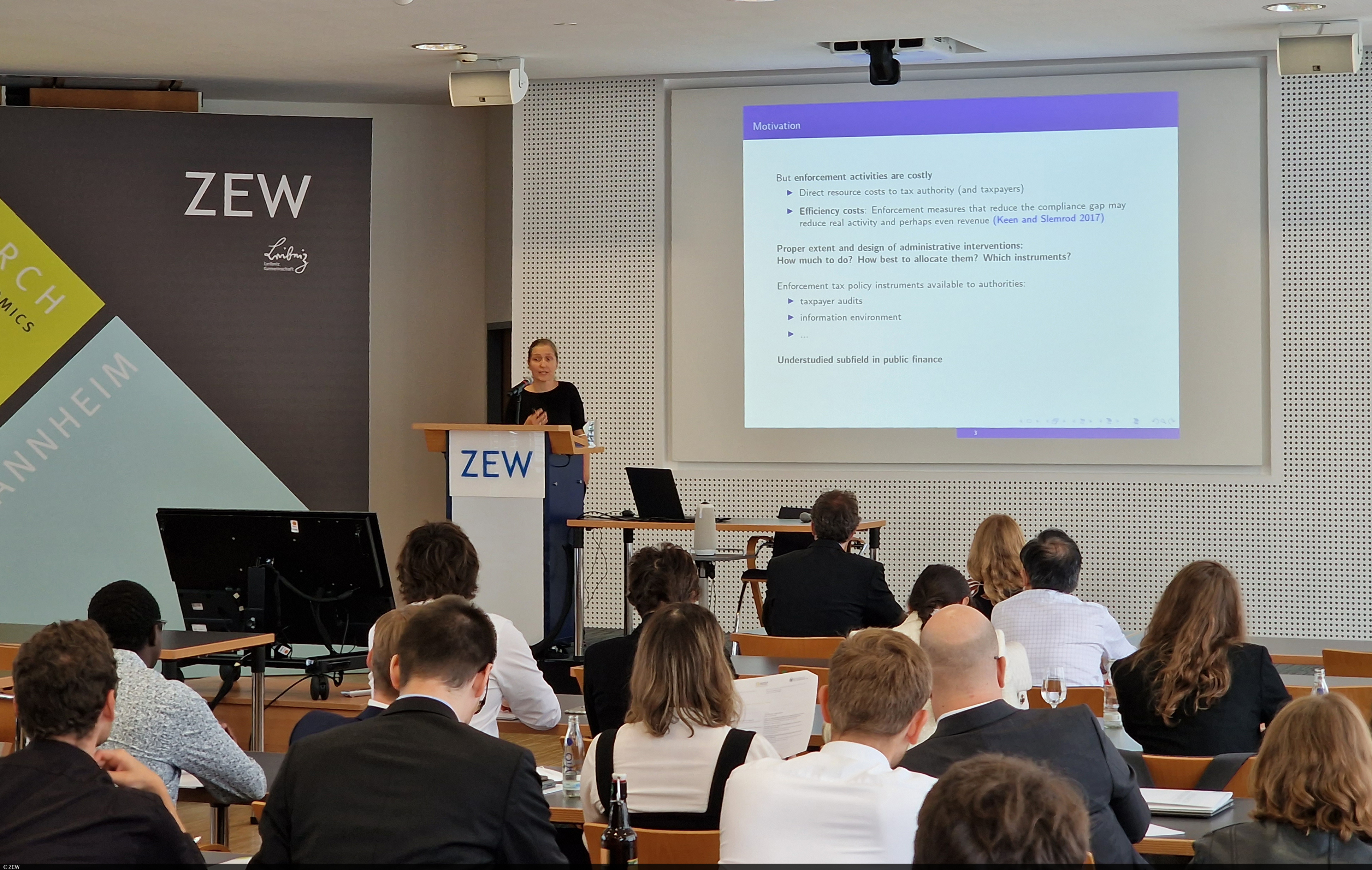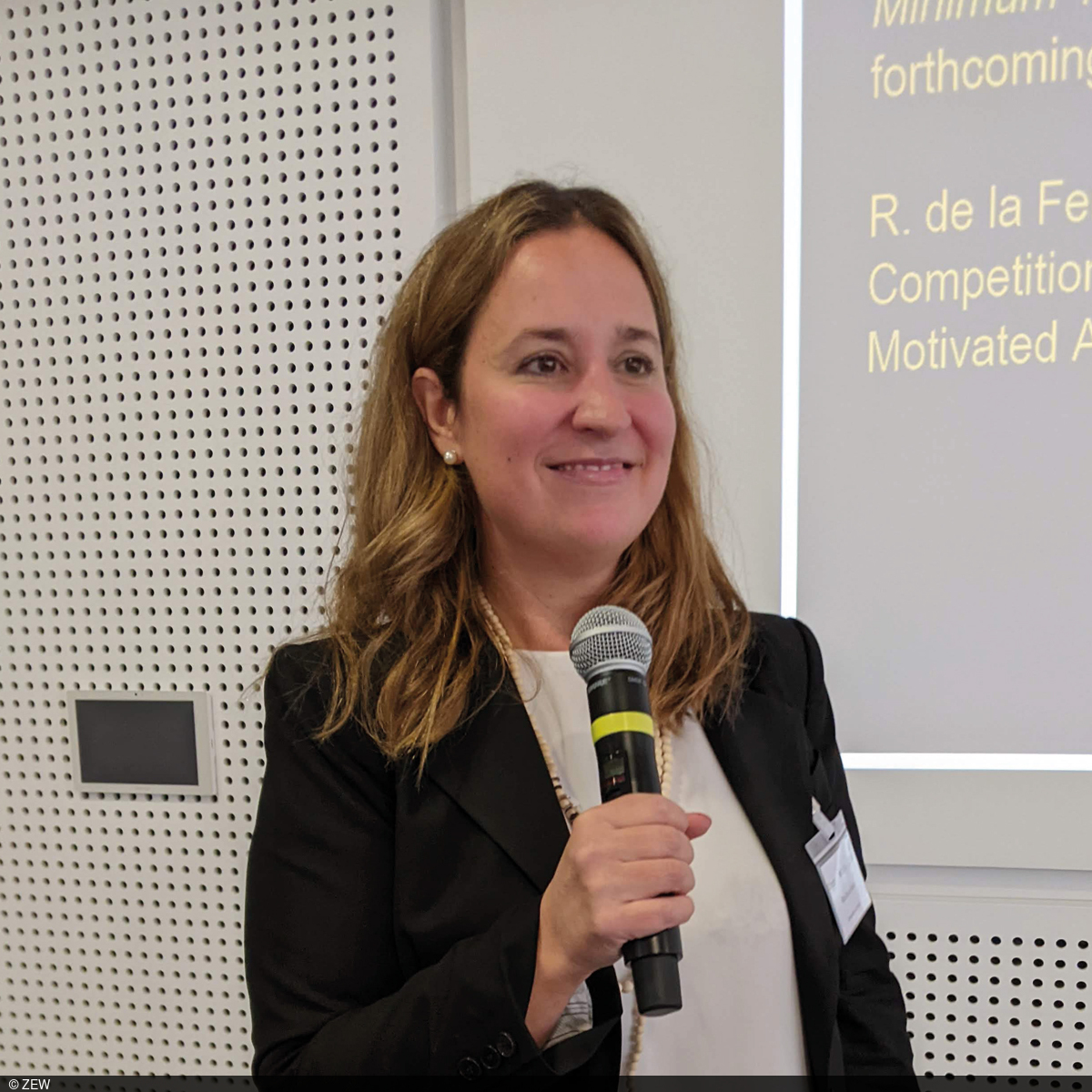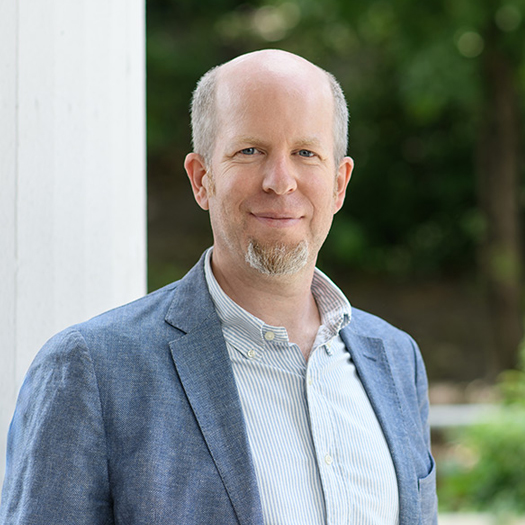Renowned Tax Conference in Mannheim Again
ConferencesNinth Annual MannheimTaxation Conference 2022 Returns to ZEW’s Premises
Tax research at ZEW and the University of Mannheim enjoys a high reputation. Both institutions work closely together in the Leibniz ScienceCampus MannheimTaxation and jointly investigate how a sustainable tax system can be designed to meet new economic and societal challenges at national, European and global level. In September 2022, the international Annual MannheimTaxation Conference took place for the ninth time. After being held as a virtual format for the last two years, it has now returned to ZEW’s premises in Mannheim.
Over 70 participants from all over the world discussed 43 current works in the field of tax research in a total of fourteen regular sessions and one poster session. Keynote speakers were Professor Nadine Riedel from the University of Münster and Professor Rita de la Feria from the University of Leeds.
Enforcement of tax rules has positive effects
Professor Nadine Riedel’s lecture dealt with effective tax enforcement, an extremely dynamic area of tax research. A number of empirical studies showed that (more) consistent enforcement – which is by no means given in all countries – not only increases tax revenues, but also has a number of positive side effects. Among other things, it strengthens citizens’ trust in state institutions. In her presentation, Riedel addressed numerous aspects of an optimal design of tax enforcement, drawing on a growing number of empirical studies.
Critical view of the two-pillar model
Professor Rita de la Feria addressed the two-pillar model for global minimum taxation, which includes the introduction of a minimum tax of 15 per cent for large multinational companies. The model was developed under the OECD/G20 Inclusive Framework on Base Erosion and Profit Shifting (BEPS). Many developing countries have been involved in this process and, with few exceptions, have agreed to the two-pillar solution. In her presentation, de la Feria critically examined the process and in particular the role of the rich OECD/G20 countries. For example, she questioned the narratives shaped by these countries, including the moral spin of global tax competition in which smaller low-tax countries outside Europe were assigned the role of the ‘villain’.
About the ScienceCampus MannheimTaxation
The ScienceCampus MannheimTaxation is a joint initiative of ZEW Mannheim and the University of Mannheim. Founded in 2014, MannheimTaxation has contributed significantly to establishing Mannheim as an internationally recognised centre for tax research. Numerous researchers in Mannheim and Heidelberg are working on current issues regarding corporate and private taxation, public finance and tax law. The ScienceCampus model is a Leibniz Association initiative to promote strong and visible cooperation between Leibniz member institutions and universities, as well as to establish complementary local research partnerships. The goal is to promote research in a field while advancing its individual topics of research. The networks associated with MannheimTaxation complete high-quality research, further interdisciplinary cooperation in research, projects and methods, increase the visibility of participating research facilities and improve their research profile.


